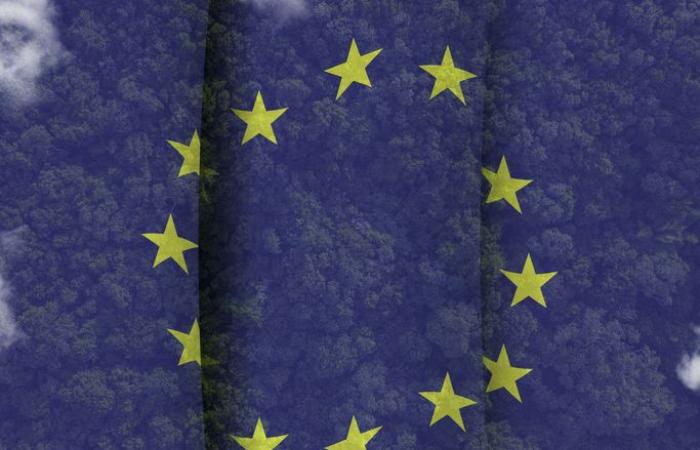On June 18, the Council of the European Union announced that it had adopted its position on the Green Claims Directive. This new directive is part of a broader European Green Deal strategy, aiming to reduce greenwashing and help consumers make greener choices.
An article by Jon McGowan for Forbes US – translated by Lisa Deleforterie
The position adopted by the Council provides an important overview of what the final directive will include, but changes are expected as negotiations begin.
With increasing global concerns about the impacts of climate change, consumer interest in supporting environmentally friendly businesses has increased significantly. This surge in consumer interest, along with pressure from financial investors and other parties, has pushed companies to take pro-climate stances. However, there is growing and justified concern over the tendency of certain companies to exaggerate their ecological initiatives, a phenomenon referred to as greenwashing.
Traditionally, greenwashing was done through marketing. When customers were looking for eco-friendly businesses, it was in their interest to market themselves as greener. In recent years, the term “climate-washing” has developed as a subcategory of greenwashing, focusing specifically on the exaggeration of claims regarding climate change and greenhouse gas emissions. For decades, greenwashing has infuriated environmental activists who demand concrete action from companies. However, with the rise of environmental, social and governance (ESG) criteria, the legal pitfalls of greenwashing have also intensified.
Greenwashing has evolved from simple, clever marketing campaigns to practices that deceive investors and violate consumer protection laws.
EU strengthens guidelines to combat greenwashing
There has been a general lack of regulation of greenwashing. However, with the Paris Agreement encouraging further climate regulations, the legal framework regarding greenwashing has also strengthened. This is particularly notable in the EU, where a set of anti-greenwashing guidelines are being drafted into law.
In February, the EU adopted a directive aimed at empowering consumers to act in favor of the ecological transition, legislation specifically targeting environmental and climate claims. This directive prohibits generic environmental claims “ without recognized exceptional environmental performance, relevant to the claim “. Examples of problematic language in legislation include “ eco-friendly “, ” environmentally friendly “, ” Green “, ” ecological “, ” ecologically correct “, ” biodegradable “, ” bio-based » or similar statements that suggest or create the impression of exceptional environmental performance.
The Green Claims Directive is designed to work alongside the Consumer Empowerment Directive. addressing specific aspects and requirements relating to explicit environmental claims, which are environmental claims made in writing or orally, and environmental labeling systems and corresponding environmental labels with regard to their substantiation, communication and verification “.
The directive targets explicit environmental claims, whether written or oral, and environmental labels that companies voluntarily use in their marketing. The aim is to make environmental claims “ clear and easy to understand » for the consumer.
The Council position on the Green Claims Directive states: “ If environmental claims are not reliable, comparable and verifiable, consumers and other market participants cannot fully leverage their purchasing decisions to reward better environmental performance “. The new directive will impact other climate initiatives “ by enabling consumers to make informed purchasing decisions and helping to create a level playing field for market operators making such explicit environmental claims and displaying environmental labels “.
“ It would be misleading to consumers if an explicit environmental claim or environmental label emphasized benefits in terms of environmental impacts or environmental aspects while omitting that the realization of these benefits results in negative trade-offs on other environmental aspects or impacts . »
In particular, the directive targets carbon offsetting or the purchase of carbon credits by companies to offset their greenhouse gas emissions. “ It is therefore prohibited in all circumstances to claim that a product has a neutral, reduced or positive impact on the environment in terms of greenhouse gas emissions on the basis of offsetting greenhouse gas emissions. tight. »
The Council’s position will be used in negotiations with the European Parliament to draft the final text of the directive. Negotiations are expected to begin during the next legislative session. Once adopted, the directive will apply to all businesses present in the EU, including small and medium-sized enterprises and micro-enterprises, although the current proposal delays implementation for SMEs by 14 months.
What remains to be seen is the impact of the recent EU elections which tilted Parliament to the right. Even before the elections, there were calls from Parliament and member states to reduce the regulatory burden on SMEs. If the recently adopted Corporate Sustainability Due Diligence Directive is any indicator, the Environmental Claims Directive could be significantly watered down before its final adoption.
Also read: Future of Sustainability | The European Green Deal is threatened, bad news for the planet… and the economy.






